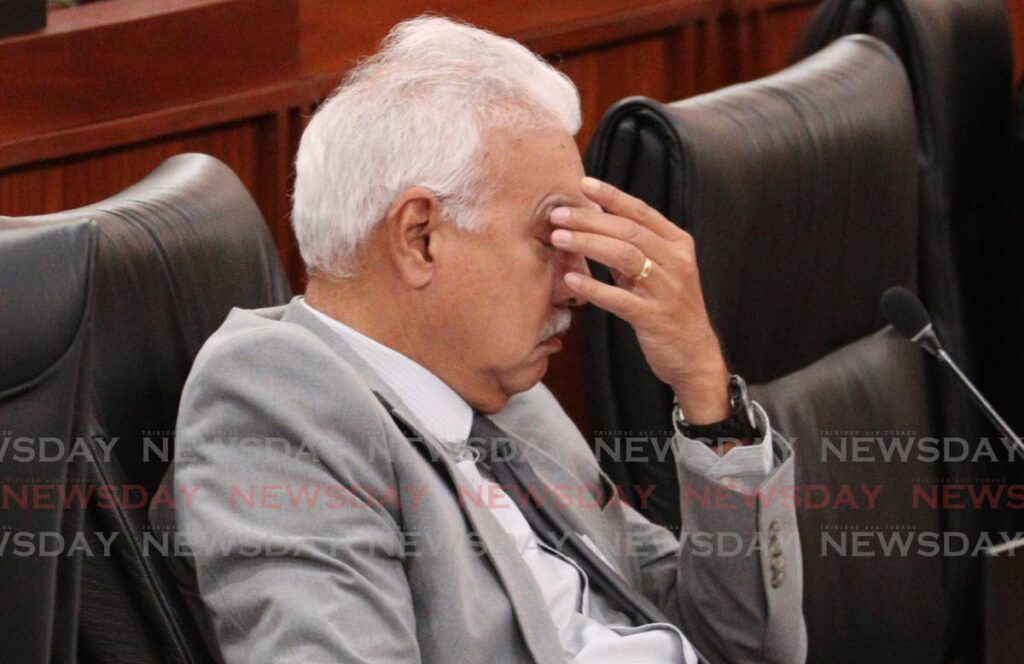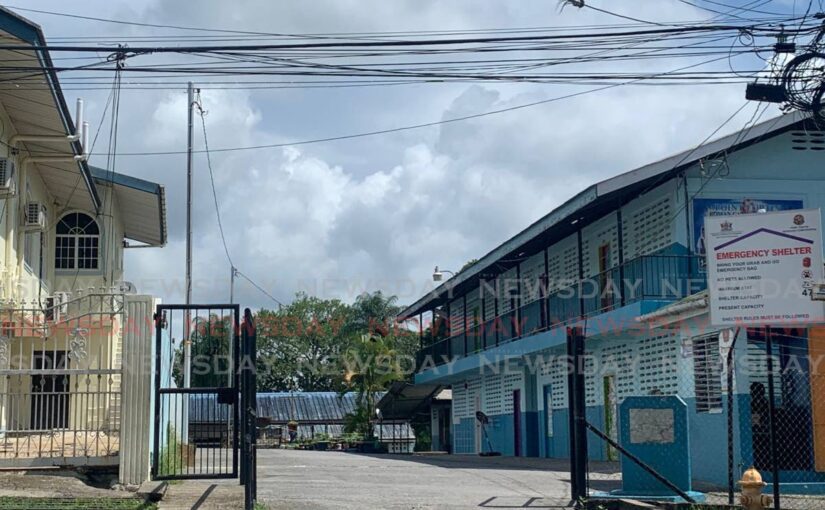Health Minister on dengue deaths: Don’t politicise public health matters
 27 November 2024
27 November 2024


HEALTH Minister Terrence Deyalsingh says there must be no politicising of public health matters or people will suffer.
Deyalsingh also said as of October 18, public health inspectors had issued 1,324 notices to property owners to clean up their surroundings to curb the spread of dengue fever.
"Of this (number), 81 property owners or occupiers have thus been identified for the consideration and institution of legal proceedings for non-compliance.
He was responding in the Senate on November 26 to questions from Opposition Senator Wade Mark and temporary Opposition Senator Dr Tim Gopeesingh about dengue.
Mark asked Deyalsingh what were "the real factors" which caused 19 people to die from dengue.
>
Deyalsingh said the answer was multi-factoral.
"As we saw with covid, co-morbidities and other medical conditions will play a role."
He reminded senators, "At the start of the year, I started to alert the population that dengue was becoming a global worldwide problem affecting over 120 countries."
Deyalsingh said he had provided details of a Pan American Health Organization (PAHO) report which showed "the whole region (the Americas), including the Caribbean, as one of the areas most affected by dengue fever."
He added that global warming and changes in weather patterns were creating tropical-like domains in temperate areas which the mosquitoes were thriving in.
Deyalsingh referred to reports of the closure of public parks in Plymouth, Massachusetts, in August to prevent the spread of eastern equine encephalitis (EEE) – a mosquito-borne illness that can be fatal – to support his argument.
A statement issued then by the US Centers for Disease Control said, "There is no vaccine for EEE, and although rare, EEE is very serious. Approximately 30 per cent of people with eastern equine encephalitis die, and many survivors have ongoing neurologic problems."
Deyalsingh said it was the first time such a thing had ever happened in Massachusetts.
He lamented that while that was happening, the UNC was misleading the population about how to curb the spread of the Aedes aegypti mosquito, the insect vector of dengue.
>
Deyalsingh said four UNC-controlled local government corporations (Sangre Grande Regional Corporation and three others in South Trinidad) had been claiming to the media that dirty, uncleaned drains were breeding grounds for the Aedes aegypti mosquito.
He repeated that the mosquito only bred in clean, clear, stagnant water.
Deyalsingh said that was why the ministry continued to urge people to reduce such water sources around their homes.
He lamented the ministry lost an entire month in its efforts to curb the spread of the mosquito because of the actions of the UNC.
"That is what is misleading a lot of people, when they hear different messages: one message from the government, which is science, and one message from the opposition, which is political."
Deyalsingh said the UNC behaved in a similar way during the covid19 pandemic.
"When it comes to public-health measures as in covid, if we are not aligned, people will suffer. We must align when it comes to public-health issues.
"Coming four years after (the start of covid19) to talk about fake vaccines is not a way to address a public-health matter."
Mark noted there were teenagers among the 19 dengue deaths.
>
He asked Deyalsingh to reveal the percentage of the 19 people who died with co-morbidities.
Deyalsingh said, "It is not my intention to disclose the medical history of any of the 19 persons."
He added he had information but could not reveal it.
"Patient confidentiality is the bedrock upon which the medical fraternity operates. It is sacrosanct."
He told senators caution must be exercised "when it comes to asking for people's medical records to be given to the public."
Deyalsingh dismissed Gopeesingh's claims about the ministry's Insect Vector Control Division (IVCD) being in disarray as "a figment of someone's imagination."
He told senators he had already put that issue to rest during a meeting of the Standing Finance Committee of the House of Representatives on October 11.
Deyalsingh said the UNC also continued to mislead people into believing that over-spraying was the solution to killing the Aedes aegypti mosquito and curbing dengue.
He told Gopeesingh that as a doctor, Gopeesingh knew that over-spraying damaged animal and human health and caused mosquitoes to become immune to the insecticides used against them.
>
Deyalsingh said for fiscal 2024, "The number of houses sprayed residually was 83,320.
He added the numbers of houses which received thermal fogging and ultra-low volume (ULV) spraying for the same period were 26,327 and 166,767 respectively.




